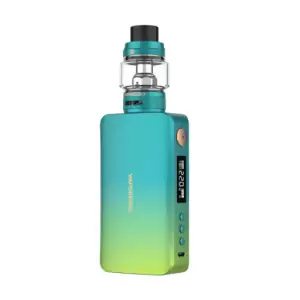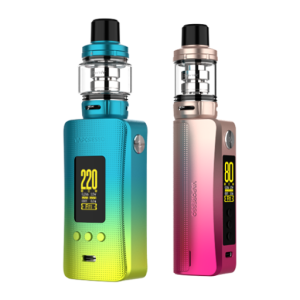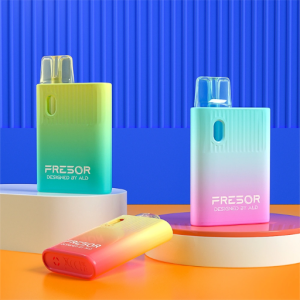In recent years, the global landscape of vaping laws has experienced significant shifts, reflecting a growing awareness and diverse approaches to regulation. Disposable vapes, popular for their convenience and accessibility, have found themselves at the center of these changes, with laws varying dramatically from one country to another. This variability underscores the importance for users, particularly those who travel, to stay informed about the legal status of disposable vape in different jurisdictions.
The global regulation of vaping, and disposable vape in particular, is influenced by a multitude of factors, from public health concerns to the influence of traditional tobacco industries. Some countries have embraced vaping as a less harmful alternative to smoking, implementing regulations that promote safety and quality control. Others have opted for stricter measures, including outright bans, citing public health concerns and the lack of long-term data on vaping’s health impact.
Navigating this complex regulatory environment requires an understanding not only of the laws in one’s own country but also of the regulations governing disposable vapes in destinations around the world. For travelers, this knowledge is crucial to avoid legal issues or fines. Moreover, venues such as airports, restaurants, and public spaces may have their own specific rules, adding another layer of complexity.
As disposable vape continue to grow in popularity, the importance of staying informed about vaping laws cannot be overstated. This guide aims to provide a comprehensive overview of where disposable vape are banned or allowed, by country and venue, offering users a roadmap to navigate the evolving legal landscape of vaping worldwide. Through this exploration, vapers can gain insights into the common regulatory themes, including age restrictions, usage in public places, and sales limitations, ensuring they remain compliant and enjoy their vaping experience responsibly.
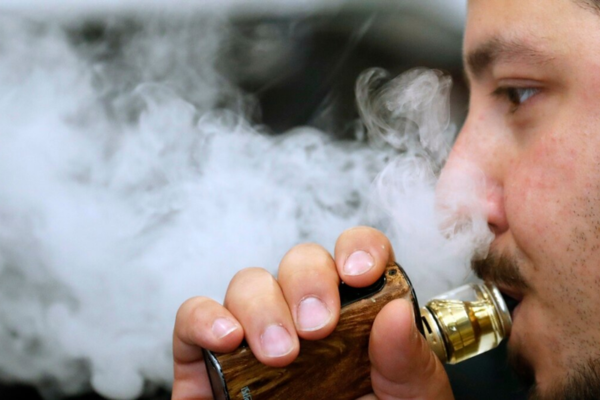
Understanding the Basics of Vaping Laws
The regulatory landscape for disposable vapes is as diverse as the countries that legislate them. Understanding the basics of vaping laws helps users navigate this complex field, ensuring compliance and fostering responsible use. Here, we delve into common regulatory themes and distinctions between disposable vapes and reusable vaping devices.
Common Regulatory Themes
- Age Restrictions: Nearly universally, laws restrict the sale of disposable vape to adults. The minimum age varies, typically ranging from 18 to 21 years old, depending on the country or region’s legal standards for tobacco and nicotine product consumption.
- Usage in Public Places: Many jurisdictions have laws governing where disposable vape can be used. Often, vaping is prohibited in the same spaces where smoking is banned, including but not limited to restaurants, bars, and other public indoor spaces. However, specifics can vary widely, with some areas offering more leniency for vaping compared to traditional smoking.
- Sales Limitations: Regulations frequently address how and where disposable vape can be sold. This includes restrictions on online sales, limitations on flavors that might appeal to minors, and requirements for health warnings on packaging. Some countries also impose taxes on vaping products, influencing their market availability and price.
Distinction Between Regulations for Disposable Vape and Reusable Vaping Devices
While the foundational regulations often apply to all types of vaping devices, there can be specific considerations for disposable vapes:
- Environmental Impact: Disposable vape, by their single-use nature, raise environmental concerns. Some regions have begun implementing regulations aimed at reducing waste, including recycling programs or additional disposability fees.
- Health and Safety Standards: Given the lack of a need for maintenance or the possibility to modify disposable vape, they may be subject to different safety standards compared to their reusable counterparts. This can include regulations on battery safety, e-liquid composition, and maximum nicotine levels.
- Customization and Control: Reusable devices often offer more options for customization, which can affect regulatory approaches. For example, refillable tanks on reusable devices might face stricter regulations regarding e-liquid sales than the pre-filled cartridges or pods used in disposable vapes.
Understanding these regulatory themes and distinctions is crucial for anyone using disposable vapes, especially when traveling. Being informed about the legal environment not only helps in adhering to local laws but also supports the global vaping community’s efforts to maintain a positive, responsible image. As regulations continue to evolve, staying updated on current laws ensures that vape users can make informed decisions about where and how they enjoy their products.
Country: United States – Regulations on Disposable Vapes
In the United States, the regulation of disposable vapes involves a complex interplay between federal and state-level legislation. Understanding these regulations is essential for users to navigate the legal landscape effectively.
Federal Regulations Affecting Disposable Vapes
At the federal level, the Food and Drug Administration (FDA) oversees the regulation of tobacco and nicotine delivery products, including disposable vapes. Key points include:
- Minimum Age Requirement: The sale of disposable vape to individuals under the age of 21 is prohibited nationwide.
- Premarket Authorization: Manufacturers must receive FDA authorization before marketing new disposable vape products. This process evaluates the product’s impact on public health, including its appeal to youth.
- Flavor Restrictions: While there has been significant debate over flavor bans aimed at reducing the appeal of disposable vape to minors, as of the last update, the FDA had focused its enforcement on certain flavored cartridge-based e-cigarettes, not including tobacco and menthol flavors. However, disposable vape have been scrutinized for their variety of flavors.
State-Level Regulations and Specific Bans or Restrictions
State and local governments often impose additional regulations on disposable vapes:
- Flavor Bans: Some states, including California, Massachusetts, and New York, have enacted laws restricting or banning the sale of flavored disposable vapes to curb youth vaping.
- Usage Restrictions: Various states and municipalities have extended smoke-free laws to include disposable vapes, prohibiting their use in indoor public places and, in some cases, outdoor public spaces.
- Sales and Taxation: States may also regulate the sale of disposable vape through licensing requirements, limits on nicotine content, and taxation, which can significantly affect availability and price.
Navigating State and Federal Regulations
For users of disposable vapes, staying informed about both federal and state regulations is critical:
- Research Local Laws: Before traveling or purchasing disposable vapes, verify the laws specific to your state or locality, as regulations can vary significantly.
- Compliance: Ensure that any disposable vape purchases comply with local laws, including flavor restrictions and nicotine content limits.
- Advocacy and Education: Users and advocates of disposable vapes can engage in advocacy efforts to influence future regulations and promote responsible vaping practices.
The regulatory environment in the United States exemplifies the diverse approaches to managing disposable vape, balancing public health concerns with access to alternatives to combustible tobacco products. As legislation continues to evolve, users must remain vigilant and informed to navigate the complexities of vaping laws effectively.
Country: United Kingdom – A Liberal Approach to Vaping
The United Kingdom stands out for its relatively liberal stance on vaping, including disposable vapes, viewing them as a valuable tool for smoking cessation. This approach is backed by Public Health England’s position that vaping is significantly less harmful than smoking traditional cigarettes. Here’s an overview of the regulatory framework and venue-specific rules governing disposable vape in the UK.
Regulatory Framework for Disposable Vapes in the UK
- Age Restrictions: The sale of disposable vape to individuals under 18 is prohibited across the UK. Retailers are required to enforce age verification checks to comply with this law.
- Advertising Regulations: The UK has strict regulations on the advertising of disposable vape. While certain forms of promotional materials are allowed, they must not target minors or non-smokers, ensuring that marketing efforts are directed toward adults looking to quit smoking.
- Quality and Safety Standards: Disposable vape in the UK are subject to rigorous safety and quality standards. The Tobacco and Related Products Regulations 2016 set limits on tank sizes, nicotine strength (not exceeding 20mg/ml), and require that all vaping products are child-resistant and tamper-evident.
Venues Where Vaping is Explicitly Allowed or Prohibited
While the UK government does not mandate a nationwide ban on vaping in public places, decisions are often left to the discretion of venue owners. Consequently, policies can vary:
- Public Transport and Airports: Most airlines and public transportation systems, including trains and buses, prohibit the use of disposable vape onboard. However, some airports may provide designated vaping areas outside terminal buildings.
- Bars, Pubs, and Restaurants: Vaping policies in hospitality venues like bars, pubs, and restaurants are set by the proprietors. While some establishments embrace vaping, others may restrict it to certain areas or ban it altogether to accommodate all patrons comfortably.
- Workplaces: Corporate vaping policies are employer-determined. Some companies may have designated vaping areas, while others may align their vaping policies with smoking, restricting use to specific outdoor locations.
Navigating Vaping in the UK
For vapers traveling to or within the UK, understanding the local landscape is crucial:
- Research Before You Go: Check the vaping policies of places you plan to visit or stay. Websites and visitor information often outline whether vaping is allowed.
- Be Courteous: Even in venues where vaping is permitted, use discretion and be mindful of those around you. Opting to vape in designated areas or outdoors can help maintain a comfortable environment for everyone.
- Stay Informed: Regulations and public attitudes toward vaping can evolve. Keeping abreast of the latest news and guidelines from reputable sources like Public Health England can ensure you’re up to date.
The UK’s approach to disposable vapes reflects a balance between promoting public health and acknowledging the role of vaping in smoking cessation. By staying informed and respectful of venue-specific rules, vapers can navigate the UK’s vaping landscape with ease.
Country: Australia – Tight Regulations with a Prescription Twist
Australia’s approach to regulating disposable vapes is notably stringent, characterized by tight controls and a unique prescription requirement for nicotine vaping products. This framework aims to minimize youth vaping while allowing smokers to access vapes as a cessation tool under medical guidance.
Insight into Australia’s Vaping Regulations
- Prescription Requirement: As of October 2021, individuals in Australia need a prescription from a registered doctor to legally purchase and possess nicotine disposable vape and other e-cigarettes. This measure is intended to support smokers in quitting while preventing widespread nicotine addiction among non-smokers and youth.
- State Variations in Law: The legal status of possessing and using disposable vape with nicotine without a prescription varies by state and territory, with penalties for non-compliance. Some regions have implemented their own additional restrictions on the sale and use of both nicotine and non-nicotine vapes.
- Importation Rules: Australians can import nicotine disposable vape for personal use under the Therapeutic Goods Administration’s (TGA) Personal Importation Scheme, but only if they hold a valid prescription. There are limits on the quantity that can be imported within a 12-month period.
Implications for Users
The prescription model for nicotine vaping products, including disposable vape, places Australia among the few countries adopting a medicalized approach to vaping. This has several implications:
- Access and Compliance: Vapers must navigate the medical system to access nicotine vaping products legally, requiring them to consult healthcare providers who are willing and authorized to prescribe nicotine for smoking cessation.
- Awareness and Enforcement: There is a significant onus on both consumers and healthcare professionals to be informed about the regulations and the process for legally obtaining nicotine vapes.
- Public Health Perspective: The Australian government’s stance is rooted in a cautious public health perspective, emphasizing the potential risks of nicotine addiction and the unknown long-term effects of vaping.
Navigating Vaping Laws in Australia
For those in Australia or planning to visit, understanding the legal landscape around disposable vapes is crucial:
- Seek Professional Advice: If you’re considering using disposable vape as a smoking cessation aid, consult a healthcare professional to discuss your options and obtain a prescription if appropriate.
- Research State Laws: Be aware of the specific regulations in the state or territory you are in or plan to visit, as laws and penalties can differ significantly.
- Consider Legal Alternatives: For those unable or unwilling to obtain a prescription, exploring non-nicotine disposable vapes or other cessation methods may be necessary, though it’s important to verify the legality of these alternatives as well.
Australia’s regulatory approach to disposable vape underscores the country’s precautionary stance on nicotine use and vaping, aiming to balance public health interests with the needs of individuals seeking to quit smoking.
Country: Canada – Balancing Regulation with Harm Reduction
Canada’s approach to regulating disposable vapes reflects a balanced perspective, aiming to reduce the harm associated with smoking while preventing youth vaping. This dual focus is evident in the federal and provincial laws governing the sale, marketing, and use of disposable vapes.
Examination of Canada’s Federal and Provincial Laws on Disposable Vapes
- Federal Regulations: Health Canada oversees the regulation of vaping products under the Tobacco and Vaping Products Act (TVPA). This legislation sets national standards for the manufacturing, sale, labeling, and promotion of disposable vapes. Notably, it restricts the sale of vaping products to individuals under the age of 18 and bans certain flavors and marketing practices that appeal to youth.
- Provincial and Territorial Variations: In addition to federal regulations, provinces and territories have enacted their own laws that further restrict or regulate the sale and use of disposable vapes. For example, some provinces have higher minimum age requirements (19 or 20 years old), and others have imposed additional restrictions on flavors and retail environments.
How Public Health Perspectives Influence Vaping Policies
Canada’s regulatory framework for disposable vapes is underpinned by a public health perspective that recognizes the potential of vaping products as less harmful alternatives to traditional tobacco cigarettes for adult smokers. However, there is also a strong emphasis on protecting young people from nicotine addiction and the initiation into vaping. This has led to a careful crafting of laws that seek to balance harm reduction for smokers with preventive measures for youth.
Navigating Vaping Laws in Canada
For individuals using disposable vapes in Canada or planning to visit, understanding the legal landscape is crucial:
- Stay Informed About Age Restrictions: Be aware of the national age restriction and any higher age requirements in specific provinces or territories.
- Respect Flavor and Marketing Restrictions: Familiarize yourself with the federal and provincial regulations regarding permissible flavors and marketing practices to ensure compliance.
- Know Where You Can Vape: Both federal and provincial laws may dictate where vaping is allowed, often aligning these rules with existing smoking laws. Public places, workplaces, and certain outdoor areas may have restrictions on vaping.
Canada’s approach to disposable vapes showcases a nuanced strategy that navigates the complexities of harm reduction and youth protection. By staying informed and compliant with both federal and provincial regulations, users can responsibly enjoy the benefits of disposable vapes while contributing to the overarching goal of public health.
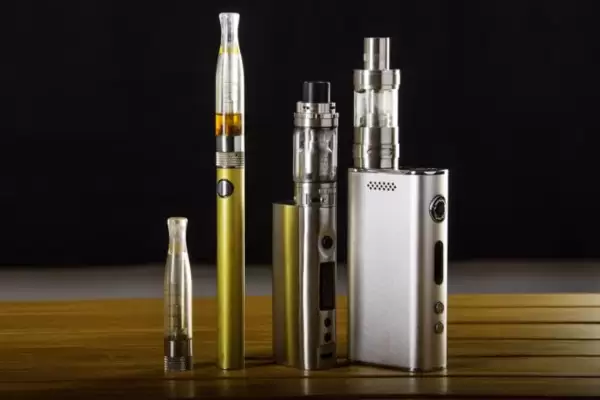
Country: Japan – Strict on Smoke, Easier on Vape
Japan presents an interesting case in the regulatory landscape of disposable vape, particularly due to its stringent anti-smoking laws juxtaposed with a more lenient stance towards vaping. This approach has positioned Japan as a unique market for disposable vape, with specific legal nuances affecting their use and sale.
Analysis of Japan’s Stance on Disposable Vapes Versus Traditional Smoking
- Tobacco Regulations: Japan has rigorous laws regulating where people can smoke tobacco, with many cities implementing strict smoking bans in public places to combat second-hand smoke. These laws often do not extend to vaping, allowing disposable vapes more freedom in use compared to traditional cigarettes.
- Sale of Nicotine Vapes: Interestingly, while nicotine-containing disposable vape are subject to regulatory control, Japan allows the sale of these products under certain conditions. However, the sale of liquid nicotine for vaping purposes is highly regulated, leading to a unique market dynamic where non-nicotine disposable vape are more freely available.
Legal Nuances Affecting the Use and Sale of Vaping Products
- Heated Tobacco Products: Japan has seen a significant rise in the popularity of heated tobacco products, which are legally distinct from disposable vape but share a similar market segment. These products, which heat tobacco without burning it, are subject to different regulations and have gained widespread acceptance.
- Vaping in Public Spaces: The absence of nationwide regulations on vaping in public allows for disposable vape to be used in more places than traditional cigarettes. However, individual businesses and local municipalities may impose their own restrictions, so discretion and awareness are advised.
Country: France – Embracing Vaping with Cautious Regulation
France has adopted a cautiously optimistic approach to disposable vape, recognizing their potential as a smoking cessation tool while implementing regulations to ensure public health and safety. This balance reflects a broader European trend of regulating vaping products through comprehensive legislation that aims to protect consumers, particularly minors, from potential harms.
Overview of France’s Regulatory Environment for Disposable Vapes
- Regulatory Framework: France adheres to the European Union’s Tobacco Products Directive (TPD), which sets standards for the sale, manufacturing, and presentation of vaping products. These include limits on nicotine strength (not exceeding 20 mg/ml), tank sizes, and packaging requirements to ensure child safety and tamper evidence.
- Age Restrictions: The sale of disposable vapes and other vaping products to individuals under 18 is strictly prohibited. Retailers are required to verify the age of purchasers to comply with this law.
- Public Usage Restrictions: Similar to many EU countries, France has implemented regulations governing the use of disposable vapes in public spaces. Vaping is banned in certain public areas, including schools, public transportation, and enclosed workspaces, to protect non-vapers and minors.
Regulations Regarding Use in Public Spaces and Venues
While France has embraced vaping more warmly than some countries, it has also taken steps to ensure that vaping remains a responsible choice for adults looking to reduce or quit smoking:
- Designated Vaping Areas: In venues where vaping is permitted, it’s common to find designated areas for vapers. These guidelines help to maintain a comfortable environment for both vapers and non-vapers alike.
- Hospitality Sector Regulations: Bars, restaurants, and cafes may have their own policies regarding vaping. While some establishments allow vaping, others may restrict it entirely or designate specific vaping areas.
Navigating Vaping Laws in France
For individuals planning to use disposable vapes in France, being aware of and adhering to local laws and venue policies is crucial:
- Stay Informed: Keep up to date with the latest regulations, as laws and policies can evolve. Checking official sources or asking for guidance from local vape shops can provide valuable insights.
- Respect Venue Policies: Always observe the rules set by individual venues. If in doubt, ask a staff member or look for signs indicating the venue’s vaping policy.
- Practice Courtesy: When using disposable vape in allowed areas, be mindful of those around you. Practicing discretion and courtesy ensures a positive experience for everyone.
France’s approach to regulating disposable vape highlights a commitment to public health while acknowledging the role vaping can play in smoking cessation. By navigating these regulations with respect and awareness, vapers in France can enjoy their disposable vape responsibly, contributing to the broader goal of reducing smoking rates.
Navigating Vaping Laws in Japan
For those using or considering disposable vapes in Japan, a few key points should guide their experience:
- Research Local Restrictions: Before vaping in public, it’s advisable to research or inquire about local restrictions to avoid inadvertently violating any business or municipal policies.
- Understand Product Availability: While disposable vape are available, the specific types, especially those containing nicotine, may be limited due to regulatory controls. Familiarizing oneself with the market can help in making informed choices.
- Respect Cultural Norms: Despite the legal leniency towards vaping, users should always consider cultural norms and practices, opting to vape in designated areas or where it won’t disturb others.
Japan’s regulatory approach to disposable vape highlights the country’s progressive stance on alternative nicotine delivery systems while maintaining strict controls over traditional tobacco use. By navigating these regulations with respect and awareness, users can enjoy the benefits of disposable vape within the framework of Japan’s unique legal and cultural landscape.
Country: India – A Comprehensive Ban on Vaping Products
India has taken a stringent stance on disposable vapes by implementing a comprehensive ban on the production, manufacture, import, export, transport, sale, distribution, storage, and advertisement of e-cigarettes and similar vaping products. This sweeping prohibition, enacted in 2019, reflects the government’s concerns about the potential health risks associated with vaping and its appeal to the youth.
Detailing India’s Nationwide Ban on Disposable Vapes and Its Enforcement
The ban, formalized through the Prohibition of Electronic Cigarettes Act, was motivated by the desire to curb the initiation of vaping among young people and to prevent the establishment of a vaping culture that could undermine India’s tobacco control efforts. The legislation categorizes disposable vape and other electronic nicotine delivery systems (ENDS) as a health risk, particularly highlighting concerns over nicotine addiction and the possibility of vapes acting as a gateway to smoking traditional cigarettes.
The Rationale Behind the Strict Prohibition and Its Effects
- Public Health Concerns: The Indian government has cited emerging research suggesting potential health risks associated with long-term vaping, including respiratory and cardiovascular issues, as a key reason for the ban.
- Youth Prevention: A significant driver behind the legislation is the prevention of nicotine addiction among India’s youth. By banning disposable vape, authorities aim to limit access to these products and reduce their appeal to minors.
- Regulatory Framework: The comprehensive ban also simplifies the regulatory framework, eliminating the need for nuanced policies regarding the sale and use of disposable vape and focusing efforts on enforcement.
Navigating India’s Vaping Laws
For travelers to India or residents who previously used disposable vape, the ban necessitates a reevaluation of nicotine cessation strategies and awareness of legal alternatives. It’s crucial for individuals to:
- Understand the Legal Implications: Possession or use of disposable vape in India could lead to legal repercussions, including fines and imprisonment. Being aware of the law’s scope is essential to avoid unintentional violations.
- Explore Alternatives: Those looking to quit smoking may need to consider other cessation methods approved by Indian health authorities, such as nicotine replacement therapies that comply with local regulations.
- Stay Informed: Regulations and public health policies can evolve. Staying informed about any changes to the vaping laws in India is important for both residents and visitors.
India’s comprehensive ban on disposable vape underscores a global divergence in regulatory approaches to vaping, with some countries embracing harm reduction perspectives while others, like India, opt for prohibition to address public health concerns. Navigating this landscape requires a keen understanding of local laws and a commitment to adhering to them.

Navigating Vaping Laws in Other Key Countries
The global landscape of vaping regulations is diverse, with different countries adopting various stances on disposable vape. Understanding these differences is crucial for vapers, especially those who travel internationally. Here’s a quick overview of vaping regulations in South Korea, Italy, and Brazil, providing insights into the legal positions on disposable vape and their impact on users.
South Korea: Strict Regulation with a Focus on Health
South Korea has implemented stringent regulations on vaping, emphasizing public health and safety. While disposable vape are legal, they are subject to strict controls, including:
- High Taxes: South Korea imposes significant taxes on vaping products, making them more expensive in an effort to deter use, especially among young people.
- Health Warnings: Packaging for disposable vape must include health warnings, similar to traditional cigarettes, to inform users of potential risks.
- Restricted Advertising: Marketing and advertising of vaping products are heavily regulated to minimize exposure to minors.
Italy: Moderate Regulations with Regional Variations
Italy offers a more moderate regulatory environment for disposable vape, with a focus on balancing public health concerns and adult smokers’ access to alternatives:
- Sales and Use: The sale and use of disposable vape are legal, but there are restrictions on advertising and promotion to protect minors.
- Regional Differences: Vaping regulations can vary by region, with some areas imposing stricter rules on where vaping is allowed, such as near schools or public buildings.
Brazil: Complete Ban on Sales and Importation
Brazil represents one of the stricter stances on vaping, with a complete ban on the sale, importation, and advertising of disposable vape and other e-cigarettes:
- Enforcement: Brazilian authorities actively enforce the ban, with penalties for those caught selling or importing vaping products.
- Public Health Justification: The ban is rooted in public health concerns, with authorities citing the lack of conclusive evidence on the safety and efficacy of vaping products as smoking cessation tools.
Tips for Vaping Travelers to Remain Compliant with Local Laws
- Research Before Traveling: Always look up the latest vaping laws of your destination country before traveling. Regulations can change, and being informed helps avoid legal issues.
- Respect Local Regulations: Comply with local laws regarding disposable vape, including age restrictions, usage bans in certain areas, and sales limitations.
- Consider Cultural Sensitivities: Beyond legal restrictions, be mindful of cultural attitudes towards vaping. In some places, vaping may be frowned upon even if it’s legally permitted.
Navigating the complex regulations surrounding disposable vape in different countries requires diligence and respect for local laws and norms. By staying informed and adopting a cautious approach, vapers can enjoy their habits responsibly while minimizing the risk of legal complications or social faux pas. Whether in South Korea, Italy, Brazil, or elsewhere, understanding the specific legal and cultural landscape is key to a hassle-free vaping experience.
The Role of Venues: Airports, Restaurants, and Public Spaces
When it comes to vaping, especially with disposable vapes, the role of specific venues like airports, restaurants, and public spaces cannot be overstated. These venues often have their own set of rules that may be stricter than general country-wide laws, affecting where and how individuals can use their vaping devices. Understanding these venue-specific regulations is crucial for vapers to remain compliant and respectful of others.
Airports
Airports are unique environments with specific security concerns and regulations, including those related to disposable vapes:
- Carry-On Restrictions: Most airports allow disposable vape in carry-on luggage, adhering to TSA or equivalent guidelines, but usage inside the terminal is often restricted to designated smoking areas.
- International Considerations: When traveling internationally, be mindful of the destination’s laws on vaping, as bringing a disposable vape into a country with strict anti-vaping laws could lead to complications.
Restaurants and Bars
Dining establishments vary widely in their acceptance of vaping:
- Venue-Specific Policies: Many restaurants and bars may choose to prohibit vaping to ensure the comfort of all patrons, even in regions where vaping in public spaces is generally allowed.
- Outdoor Areas: Some venues may permit vaping in outdoor seating areas, but it’s always best to ask for permission or look for signage indicating the establishment’s policy.
Public Spaces
Public spaces such as parks, beaches, and streets can have localized vaping restrictions:
- Local Laws and Ordinances: Some cities or municipalities impose their own restrictions on vaping in public spaces, separate from national or regional regulations.
- Courtesy and Discretion: Even in the absence of explicit bans, vapers should exercise discretion and be mindful of those around them, choosing to vape in less crowded areas or stepping aside to a more secluded spot.
Tips for Vaping Travelers to Remain Compliant with Local Laws
- Research Ahead: Before visiting a new venue or destination, look up any specific vaping policies to avoid unintentional violations.
- Ask When in Doubt: If unsure about the vaping policy of a particular venue, it’s always better to ask a staff member than to assume vaping is allowed.
- Be Prepared to Adjust: Always have a backup plan in case vaping is not permitted at your location. This might mean stepping out to a designated area or waiting until you’re in a more vaping-friendly environment.
By staying informed about and respectful of venue-specific rules regarding disposable vape, users can ensure a harmonious coexistence with non-vapers and adhere to local regulations. This mindfulness not only enhances the vaper’s experience but also contributes positively to the broader acceptance of vaping in society.Conclusion: The Importance of Staying Informed and Compliant
Navigating the global diversity in vaping laws, especially those pertaining to disposable vapes, underscores the importance of staying informed and compliant. From the stringent regulations in countries like India to the more liberal approaches in the United Kingdom, the legal landscape for vaping continues to evolve in response to public health data, cultural attitudes, and technological advancements.
Recap of the Global Diversity in Vaping Laws and the Status of Disposable Vapes
This guide has traversed through various countries, highlighting the significant variations in how disposable vapes are regulated around the world. Whether it’s the comprehensive ban in India, the cautious regulation in Australia, or the harm reduction perspective seen in Canada, each country’s approach reflects its unique stance on balancing public health concerns with the rights of individuals to make informed choices about vaping.
Final Thoughts on Understanding and Adhering to Local Vaping Regulations
For vapers, particularly those who travel, understanding the nuances of local vaping regulations is not just about legal compliance—it’s also a matter of respecting the health and comfort of the broader community. Adhering to these laws, whether they pertain to age restrictions, usage in public places, or the sale of disposable vapes, contributes to a responsible vaping culture that respects individual choice while prioritizing public health and safety.
The Significance of Responsible Vaping Practices
As the conversation around vaping and disposable vapes continues to unfold, the importance of responsible usage and disposal cannot be overstated. By staying informed about the latest regulations, engaging in respectful dialogue with non-vapers, and advocating for evidence-based policies, the vaping community can play a pivotal role in shaping a future where vaping is recognized as a viable alternative to smoking, with appropriate measures in place to protect young people and non-users from potential harms.
In conclusion, the dynamic nature of vaping laws globally necessitates a proactive approach from vapers to stay educated and compliant. By doing so, they ensure not only their own enjoyment and safety but also contribute positively to the ongoing discourse on vaping, paving the way for regulations that effectively balance harm reduction with public health protection.
FAQs: Common Questions About Vaping Laws Worldwide
Navigating the complex landscape of international vaping laws can raise many questions, especially for those who use disposable vapes and travel frequently. Here are answers to some frequently asked questions that can help clarify uncertainties regarding vaping laws across different countries.
Can I bring disposable vapes on an airplane?
Yes, you can generally bring disposable vape on airplanes in your carry-on luggage due to restrictions on lithium batteries in checked baggage. However, using them onboard is strictly prohibited. Always check the airline’s specific regulations before traveling.
Are there countries where disposable vape are completely banned?
Yes, several countries, including India, Thailand, and Brazil, have implemented comprehensive bans on the sale, possession, and use of disposable vape. Researching the laws of your destination country before traveling with vaping products is essential.
How do I find reliable information on vaping laws in a specific country?
The best sources for accurate and up-to-date information on vaping laws are government health departments, official tourism websites, and embassies. Additionally, online vaping forums and communities often share experiences and advice regarding vaping in different locales.
What are the penalties for violating vaping laws abroad?
Penalties can vary significantly, ranging from fines to confiscation of devices, and in some cases, legal prosecution. The severity often depends on the specific law violated, such as selling disposable vape where banned or vaping in prohibited areas.
How can I dispose of disposable vape responsibly while traveling?
Look for designated electronic waste disposal bins or recycling centers that accept lithium batteries. Some airports and public spaces provide these facilities. Avoid throwing disposable vapes in regular trash due to environmental and safety concerns.
Is vaping allowed in public places worldwide?
Vaping regulations in public places vary by country and sometimes within regions of a country. While some places have restrictions similar to smoking laws, others may have more lenient or stricter rules. Always look for signage indicating local policies or ask if unsure.
Can vaping laws change rapidly?
Yes, vaping laws can and do change as governments reassess public health policies and respond to new data. Staying informed through reputable news sources and official government announcements is crucial for keeping up with the latest regulations.
Understanding the intricacies of global vaping laws, particularly concerning disposable vapes, is vital for ensuring compliance and enjoying a hassle-free experience while traveling. Being well-informed and respectful of local regulations and customs not only protects you from potential penalties but also contributes to the positive perception of the vaping community worldwide.


